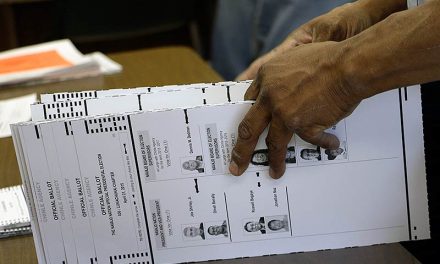
Nation takes steps to confront animal overpopulation
WINDOW ROCK
On Tuesday the Budget and Finance Committee tabled a bill (No. 0052-22) that would provide funding to spay, neuter, deworm, microchip and vaccinate more than 4,000 animals for Navajo Nation residents.
The legislation is sponsored by Delegate Eugene Tso. The funding would total $267,184 and would come out of the Unreserved, Undesignated Fund Balance.
The legislation was tabled because of concerns over the absence of budget forms needed to make an amendment. Once the legislative counsel goes over the legislation and budget, an amendment will be made and be ready for the Naabik’yati’ Committee.
The goal of the legislation is to confront and mitigate the overpopulation of unwanted animals on the Nation.
Glenda Davis, president of Animal Rez-Q Inc., attended the meeting and said they have a lot of ideas regarding the overpopulation of animals and this legislation will be a step in getting there.
“With this legislation, we are trying to address the health and safety of our people and our Nation,” Davis said. “We are also trying to address the animal ordinance that was passed in 2018 that pets should be healthy, dewormed and microchipped and that we get responsible owners on Navajo to take care of their pets.”
There are five goals included in the bill, said Davis. These goals are:
- Reach 4,000 spay and neuter surgeries.
- Vaccinate, deworm, and microchip to follow the animal ordinance of 2018.
- Establish a transport team to transport pets who are owned by elderly people who are not able to bring their animals to vaccination or surgery sites.
- A massive communication platform and to bring humane education to the Dine people.
- Accept pet surrenders at vaccination sites.
Davis hopes to bring 20 vaccination sites across the Navajo Nation. In order to use these sites, residents will be required to provide proof of residency either through a driver’s license, utility bill, or a letter written by their local chapter.
“We are also wanting to make sure these funds will benefit Navajo Nation,” Davis said. “We have a 250,000 pet overpopulation problem on Navajo and we would like to take aggressive action to try to address all of the issues.”
These issues include abandonment, starvation, deaths of pets on the highways and 3,000 bite cases a year. Also, maulings that have happened to children, youth, adults and the elderly in the last 10 years.
Davis begged the committee to pass the legislation to address these issues and to hear the concerns of local community members.
Davis read from one public comment made in favor of the legislation where a Navajo Nation resident spoke about her concerns of the overpopulation of animals and the death of her daughter which was caused by a pack of wild dogs.
“To lose a loved one because of a mauling is completely preventable and we know that violence, there’s an intersection with how families and individuals treat their animals and there an intersection on that type of violence,” Delegate Amber Crotty said.
“It’s just like our feral horses,” she said. “We’ve lost a part of us that has a duty and obligation to take care of our animals and so I completely support this request.”
Davis agreed with Crotty’s comments and said the connection between violence and animal abuse is very strong and she would like it to be broken.
“It’s not normal for us to be complacent with dead dogs on our highway, to be complacent with abandoned pets in the middle of the reservation with no food or water, or starving animals,” Davis said.
After each vaccination event, Rez-Q will document where residents and animals are coming from so they know details about the number of animals across the Navajo Nation.
With this information, they will attempt to address the core of the problem and provide humane education across the Nation in the future.
“We would like a paradigm shift, we would like the mentality of our youth to be changed, and I don’t know if it’ll be this generation, but we need to start somewhere,” Davis said. “We need to start with safety and community.”








 Highway 264,
Highway 264, I-40, WB @ Winslow
I-40, WB @ Winslow